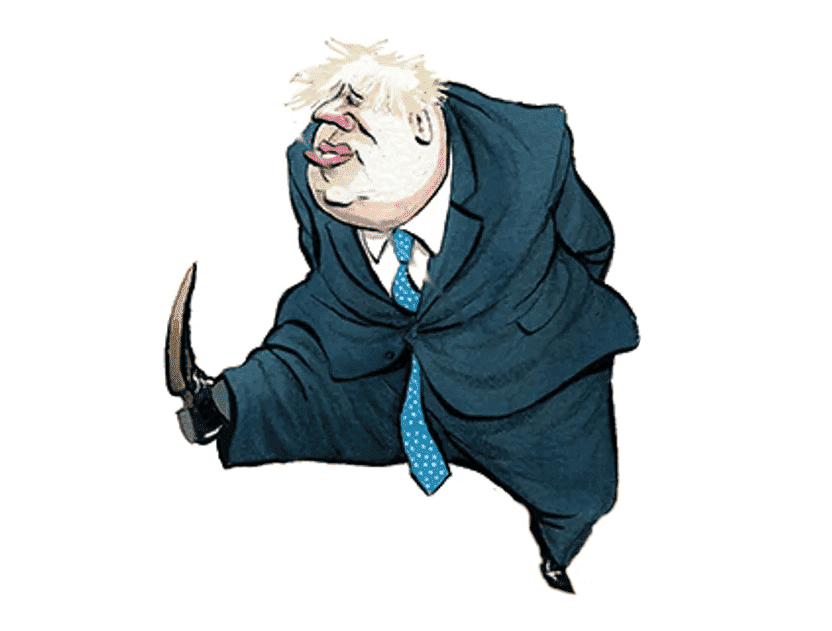The big hope for Boris Johnson, according to Dominic Cummings, was that Liz Truss’s likely implosion as Prime Minister might give him a fighting chance of making a triumphant return to Number 10. The first weeks of Truss’s premiership have not exactly been auspicious, leading some betting markets to already put Johnson among the favourites to succeed her. But history is against it: the last ex-party leader and former prime minister to return to both roles was the Liberal William Gladstone in 1880. There might still be some hope for Boris, though: the post-prime ministerial career of one of his Conservative predecessors, Edward Heath, is cause for encouragement.
Today few Conservatives talk of Heath. His career is defined by failure: he lost three of the four elections contested during his ten years as leader. Heath did unexpectedly win the 1970 election but while his government started with huge ambitions it ended less than four years later a broken reed. Even worse, for some Tories today, Heath took Britain into the Common Market.
There might still be some hope for Boris
If Johnson might have little to learn from Heath’s prime ministerial career, it is what he did afterwards that is of more interest. In February 1975, Heath was – like Johnson – effectively overthrown by his own MPs. Both men were 58 at this low point in their careers and shared the same annoyance at being forced out in such a humiliating way. Many historians see Margaret Thatcher who unexpectedly beat Heath as the beneficiary of MPs’ frustration with his aloof leadership. Unlike Johnson in so many ways – Heath rarely looked comfortable in his own skin – both were political loners. As with Johnson, the parliamentary party moved against Heath in two minds. For Thatcher was associated with the right of the party, her untested free market ideas and aggressiveness towards the unions made many feel uneasy.
Given that, Heath believed Conservatives would soon come to their senses and call him back to the leadership. Despite being kicked out, Heath was – also like Johnson – still regarded highly in the wider party. Until the 1978-9 ‘winter of discontent’ strike wave shifted public opinion, Thatcher struggled to make her mark and was less popular with voters than Labour prime minister Jim Callaghan. Even as she entered Downing Street in May 1979 Heath believed Thatcher would be forced to make him her foreign secretary. It turned out to be a fantasy.
As Thatcher applied her radical medicine to the economy, her first years as prime minister were decidedly rocky: inflation remained in double digits, unemployment rose to three million and there were riots in the inner-cities. Many leading Conservatives felt the government should return to the more orthodox policies associated with Heath.
Exploiting Thatcher’s weakness, Heath made numerous scathing attacks on the government, notably just before the 1981 Conservative conference when he demanded a reversion to consensus politics. At this point, polls suggested Thatcher was supported by less than half of Tory voters while a quarter wanted Heath back. But if he denounced Thatcher’s policies Heath did not actively plot against her personally, refusing to mobilise supporters in the cabinet and the Commons. Heath felt it beneath his dignity to scheme and conspire: he expected his minions to do this dirty work, which they dared not.
Thatcher, in contrast, remained resolute. She had already defiantly told the 1980 Conservative conference: ‘You turn if you want to. The lady’s not for turning!’ Not long after she rid her government of many leading Heath-ites. Soon, the economy began to recover, Labour lurched to the left and split while Britain reclaimed the Falkland Islands from Argentina, all of which contributed to Thatcher’s 1983 landslide election victory.
After that, Heath was very much Yesterday’s Man. He still spoke against her government, but Thatcher could now safely ignore his jeremiads. Although Heath celebrated Thatcher’s fall in 1990, he made no contribution to her demise.
So what is there for Johnson to learn? If Johnson does want to return from the backbenches, he should learn from Heath’s mistake during the 1980-1 period. Churchill once said of Lord Rosebery, another former prime minister who continued to hanker for power, ‘He would not stoop; he did not conquer’. The same was true of Heath. After all, if he had exerted himself and actively plotted against Thatcher while she was vulnerable, he might – just might – have found himself back in Downing Street. With Truss – who has, of course, tried to model herself on Thatcher – beset by huge economic problems and leading an unhappy parliamentary party, this might be Johnson’s one and only chance to strike if he wants to avoid Heath’s fate.






Comments